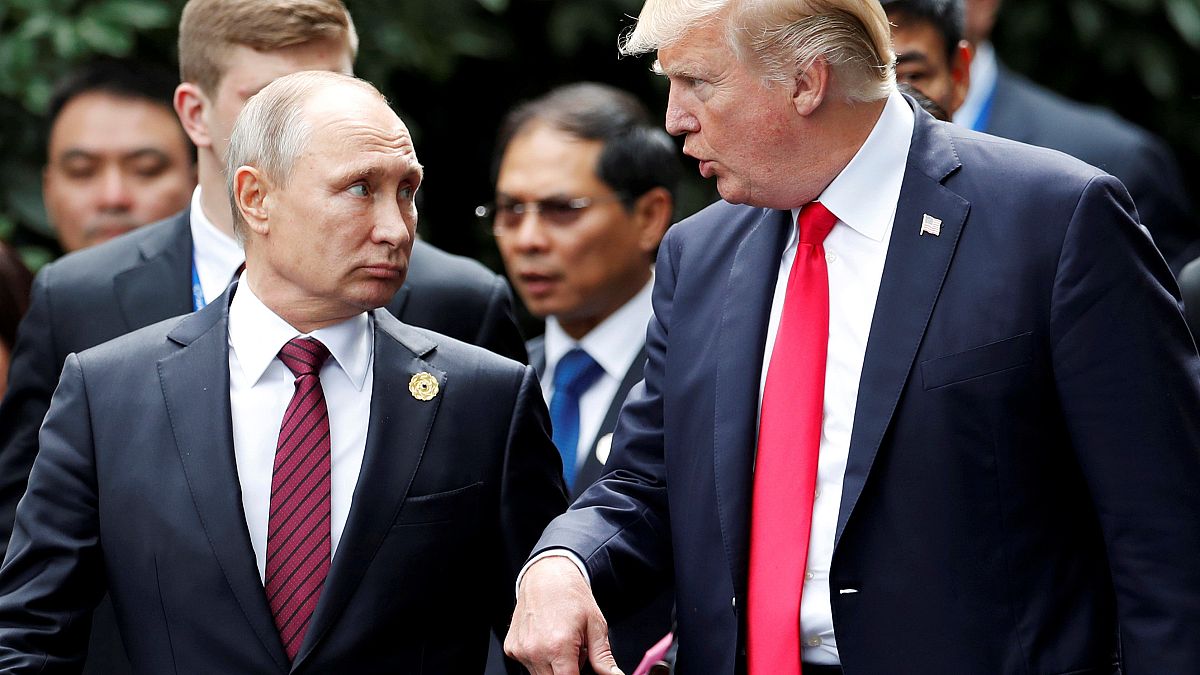How Russia’s growing soft power among Western populists has been underestimated.
By Vincent Charles Keating and Katarzyna Kaczmarska
The concern over Russia’s influence in the West has grown considerably in the past few years, particularly the Russian regime’s use of information technologies to malign unfriendly Western politicians and undermine the Western public’s faith in democracy. Christopher Paul and Miriam Matthews, for instance, argued that Russia’s influence strategy is based on a "firehose of falsehood" propaganda model, grounded in a “shameless willingness to disseminate partial truths or outright fictions” through multiple channels simultaneously. Similarly, the term "sharp power" was recently coined by Christopher Walker and Jessica Ludwig to describe Russia’s behaviour, which is a type of influence that “target[s] audiences by manipulating or poisoning the information that reaches them.”
Though it is clear that the Russian regime has used propaganda and disinformation as tools in their versatile foreign policy, the majority of the discussion over Russian influence has focused solely on this point. We argue that, in doing so, the debate has overlooked an important factor that not only affects how we should understand Russian influence, but what should be done about it: Russia’s growing soft power among Western populists.
Soft power, according to Joseph Nye, who coined the term, is a particular power of attraction to a state based on the appeal of its culture, political values, and foreign policy. States that have soft power can influence other states to get what they want internationally.
But the question is: which political values will be attractive to others? While Nye argues that this is likely to be contextual, in his discussions of soft power, he comes back again and again to one particular answer: liberal democracy. This assumption, in turn, is reflected in almost all other commentary about soft power. Liberal values are the only values that can be truly attractive. Thus, when Nye talks about the potential for non-liberal states like Russia to increase their soft power, his recommendations are always based on liberal democratic values, such as "unleash[ing] the full talents of their civil societies."
This liberal bias has led the majority of Russia-commentators to miss something that is in plain sight: that Russia’s conservative values are increasingly attractive among populist groups in the West, and that this attraction is doing what soft power is supposed to do: generating support for Russia’s foreign policy.
As we have argued at length elsewhere, the ideological attraction of the values put forward by the Russian regime cross several categories, including moral conservatism, illiberal governance, and strong leadership. These have found resonance among a diverse group of Western political elites, all of whom praise Russia as a leader in this issue area.
For instance, Marine Le Pen, leader of France’s Front National, argued that she and Putin defend ‘"common values," particularly the "Christian heritage" of Europe. Many Western populist political elites have openly praised Putin for his strong leadership style, including UKIP’s Nigel Farage, Steve Bannon, the former chief strategist for President Trump and the US president himself. In fact, a 2016 survey conducted by the European Council on Foreign Relations found that all 41 representatives of European anti-establishment parties, on both the right and the left, were sympathetic to Vladimir Putin’s Russia.
This attraction to the conservative ideological values put forward by the Russian government does what soft power is supposed to do: granting legitimacy and moral authority to foreign policy. When the European Union decided to sanction Russia over the annexation of Crimea, populist political elites who had previously pointed to Russia with admiration opposed this decision. When Russia decided to get militarily involved in Syria, these same populist elites supported Russia’s decision.
Russia’s soft power among these populist groups is important to recognize because it means that Russian influence is not just about propaganda and disinformation: it is also about ideological attraction among a growing and influential constituency within the West.
This is significant for two reasons. First, it means that Russian propaganda is not simply being delivered to a uniform audience that needs to be convinced or confused: it is being delivered to a differentiated audience, some of whom will buy into the messages put out by the Russian regime because it conforms with their ideological values.
Second, it means that countering Russian influence in the West is not simply a matter of fact-checking to counter the propaganda efforts. This will not be effective among populists who have bought into the Russian message. These people are not confused, they have not misunderstood the issues, nor are they simply "useful idiots" for the Russian state. They believe that the conservative values put forward by the Russian regime are also their values. The problem is therefore not one of access to the "right" information: it is fundamentally ideological.
This is by no means a passive audience – Western populist groups are forging ties with Russia and with each other. They believe these are values worth defending. Therefore, while we acknowledge the useful work done to understand how Russian propaganda and disinformation strategies function, if we wish to effectively counter Russian influence operations, we need to understand that the problem is potentially deeper than this, and requires a strategy that takes this ideological attraction into consideration.
Vincent Charles Keating is an Associate Professor in International Relations at the Center for War Studies, University of Southern Denmark. Katarzyna Kaczmarska is a Marie Curie Research Fellow at the Department of International Politics, Aberystwyth University.
Opinions expressed in View articles are not those of euronews.
